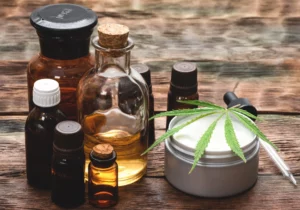What is MDMA?
MDMA is short for 3,4 methylenedioxymethamphetamine – a chemical compound that acts on the brain’s “feel good” neurotransmitters serotonin and, dopamine. It amplifies emotional connectedness, encourages people to be more open and trusting, and promotes a feeling of euphoria and relaxation. Although it gained a reputation as an illegal party drug, MDMA was originally intended to be used in clinical settings to treat certain conditions such as mental disorders, specific traumas, and phobias.
Recently, the FDA designated MDMA-assisted therapy for PTSD a Breakthrough Therapy and MAPS’ Phase 3 clinical trial of MDMA-assisted therapy demonstrated statistically significant improvement in PTSD symptoms after three sessions.
Some common street names for MDMA include beans, ecstasy, molly, uppers, and X. Currently, there is renewed interest in using MDMA and other psychedelics to treat various mental health and psychological issues. Critics of blanket criminalization of many drugs claim that governments have tended to overstate their negative effects while ignoring the potential benefits of their use.
What are the Effects of MDMA?
Within an hour of ingesting MDMA, the brain will begin to increase the production of dopamine, serotonin, and norepinephrine. Consumers generally feel happier, and more connected to others for several hours following the initial dose.
MDMA became a popular form of recreation at music festivals and raves due to its effects on perception, especially related to color and sound. Increased physical activity while under its influence can also lead to higher body temperatures and a warm feeling.
What are the Therapeutic Benefits of MDMA?
Like all psychedelics, MDMA makes temporary changes to brain activity; however, if the brain is not functioning optimally due to some disorder, psychedelics may help a person’s brain work ‘normally’.
Depression is caused by several factors, such as stress tied to specific events, an inability of the brain to regulate moods properly, chemical imbalances, and more. The Multidisciplinary Association for Psychedelic Studies (MAPS) is sponsoring clinical trials to explore the potential risks and benefits of MDMA-assisted therapy in chronic posttraumatic stress disorder (PTSD) participants.
Early studies sponsored by MAPS reveal that overall, 83 percent of participants no longer met the criteria for PTSD after using MDMA. That kind of success, say MAPS researchers, is reason to push for final studies aimed at getting full approval to market MDMA for PTSD treatment by 2021.
Another study from 2016 found that multiple patients experienced a significant reduction or remission in their chronic depression after just a week of taking psychedelics. In addition to treating depression and PTSD, MDMA has also helped addicts who take drugs such as heroin kick their addictions successfully. Researchers are optimistic that those who have addictions to cocaine and other drugs will experience similar benefits.
What Risks Associated with MDMA?
Illicit MDMA that is improperly prepared or mixed with other chemicals can prove to be fatal or cause other health problems. Side effects can include high blood pressure, panic attacks, and seizures. Unadulterated MDMA is administered in clinical trial settings under supervision. If you decide to take MDMA outside of a setting such as this, it is highly recommended to self-test your MDMA for purity with a testing kit – it could save your life.
Is MDMA Legal?
In the United States, MDMA is classified as a Schedule 1 substance. If the FDA approves MDMA, it may become legal in clinical settings and administered by mental healthcare providers trained in psychedelic-assisted therapy.
Some countries in Europe, like the Czech Republic, Spain, and Italy, have decriminalized possession of small amounts of the drug for recreational use. However, it is illegal to distribute and sell MDMA.
What Drug Interactions May Occur with MDMA?
The effects of taking MDMA with other drugs − including over-the-counter or prescribed medications − can be unpredictable and dangerous. This includes alcohol, cocaine, anti-depressants, and others. It is best to refrain from using other drugs or talk to a professional before mixing MDMA with any prescription medications, as these interaction effects can become dangerous.
Can I Legally Seek Treatment with MDMA?
At this time, anyone interested in MDMA psychedelic-assisted therapy will need to join a study or research program. Clinical Trials are currently being conducted with MDMA. Organizations such as Healthmatch can help you find an appropriate upcoming psychedelic clinical trial.
Get Your Medical Document & Purchase Medical Cannabis
It’s easy to get your medical document with the online Telehealth service HelloMD. Register, pay, and receive an online medical consultation with a licensed practitioner and start purchasing medical cannabis today.
Photo by Becca Tapert on Unsplash






